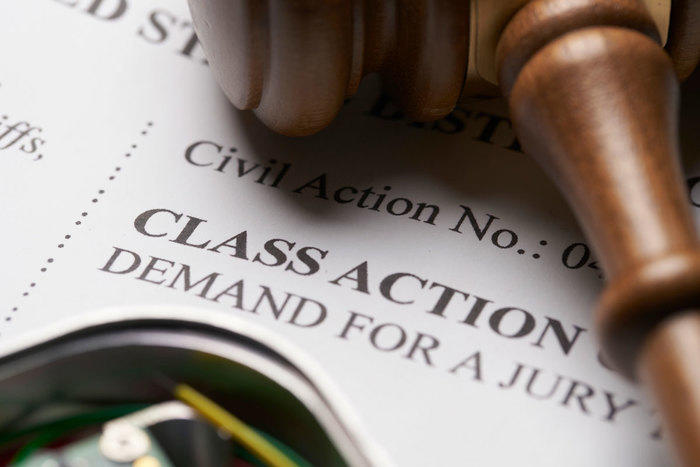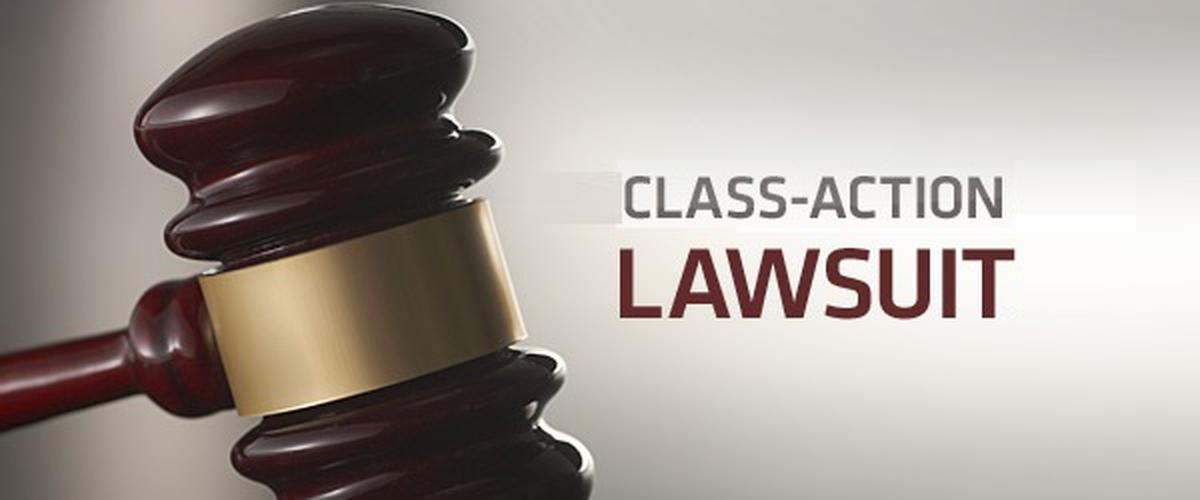Your Rights, Your Voice: The Basics of Pursuing a Class Action Lawsuit
Wiki Article
Recognizing Course Activity Legal Action: An Overview for Attorney
Course activity claims have actually ended up being an important part of the legal landscape, permitting the combination of several insurance claims into a single activity. For legal representatives, recognizing the intricacies of class action lawsuits is important in effectively representing their customers. This comprehensive guide discovers the basics of class action legal actions, from recognizing prospective class participants to browsing the accreditation process. In addition, it dives into essential strategies for taking care of course action lawsuits and offers insights right into working out and obtaining approval for negotiations. By delving right into the complexities of course action lawsuits, this guide equips legal representatives with the understanding and devices needed to efficiently navigate this intricate location of law.The Fundamentals of Course Activity Legal Actions
Class activity suits are a legal device employed to settle similar insurance claims from a team of individuals right into a solitary claim, giving a reliable and cost-effective approach to looking for justice and resolution. This kind of suit enables a depictive plaintiff, acting upon part of the whole course, to bring a case against an accused that has actually presumably caused injury or broke the civil liberties of multiple individuals.The fundamental demands for bringing a class action lawsuit include numerosity, commonness, typicality, and competence of representation. Numerosity describes the truth that the class have to be so big that joinder of all members would be impractical. Commonality suggests that there should be typical concerns of legislation or reality that are shared by all members of the class. Typicality requires that the insurance claims of the depictive complainant are typical of the claims of the entire class. Adequacy of depiction guarantees that the representative complainant will properly represent the rate of interests of the whole class.
Course action claims can be helpful for both plaintiffs and defendants. For defendants, it supplies the chance to effectively settle numerous cases in a solitary suit, avoiding the requirement to defend against many specific suits.
Identifying and Assessing Prospective Class Members
After developing the fundamental demands for a course action suit, the following action is to determine and examine prospective class participants. If they fulfill the necessary requirements., this procedure involves identifying who may be part of the class and examining their insurance claims to figure out.To recognize prospective course members, lawyers typically conduct extensive research and gather relevant information. This may include reviewing papers, conducting meetings, and examining records to identify individuals or entities that might have been affected by the alleged misbehavior. It is vital to establish a clear and thorough listing of possible course participants to ensure that all impacted celebrations are consisted of in the lawsuit.
When possible class members have been determined, the following step is to analyze their insurance claims. This involves reviewing the merits of each specific case to determine if they fulfill the legal needs for class qualification. Attorneys should very carefully evaluate the realities, evidence, and lawful theories of each possible course participant's insurance claim to guarantee that they have a viable case.
Examining possible course participants also includes identifying whether they meet the course meaning and have suffered comparable damage as a result of the offender's activities. This calls for contrasting the facts and situations of each possible course member's circumstance to the claims and legal concepts placed forth in the suit.
Navigating the Course Accreditation Process
To effectively browse the class certification process, legal representatives must faithfully adhere to the procedural needs stated by the court. Course certification is an essential action in a class action lawsuit, as it determines whether a situation can continue as a class action, standing for a group of people who have comparable claims versus an accused. The procedure entails satisfying specific standards, such as numerosity, commonality, typicality, and competence of depiction.First of all, attorneys should develop numerosity by demonstrating that the class is so large that specific joinder is impractical. This can be attained with evidence or expert testament. Second of all, they should develop commonness by revealing that there prevail questions of legislation or reality that predominate over individual concerns. This calls for a comprehensive evaluation of the defenses and insurance claims entailed.
Next, attorneys need to show typicality, which implies that the depictive complainant's claims are regular of the my blog claims of the class participants. This guarantees that the passions of the depictive complainant line up with the passions of the class. Finally, lawyers should demonstrate adequacy of representation, implying that the depictive plaintiff and their guidance will relatively and effectively stand for the interests of the class.
To browse this process effectively, legal representatives must completely prepare by conducting considerable study, collecting evidence, and establishing a compelling argument that satisfies each of these criteria. They should also be prepared to react to any difficulties or arguments raised by the defendant. By carefully sticking to the procedural demands stated by the court, legal representatives can raise their opportunities of obtaining course qualification and advancing the passions of the course participants.

Secret Strategies for Taking Care Of Course Activity Litigation
Upon effectively navigating the class certification process, lawyers have to after that execute essential techniques for successfully managing class activity litigation. These techniques are critical to guarantee that the situation proceeds efficiently and successfully, ultimately making best use of the possibilities of a positive outcome for the course participants.
One trick strategy is to develop a solid and cohesive lawful team (Class action lawsuit). This involves assembling a group of lawyers with experience in class activity litigation, along with various other pertinent areas such as the details sector or subject associated with the case. A versatile group can bring various viewpoints and skills to the table, enhancing the general efficiency of the litigation
Another vital approach is to establish a comprehensive and well-thought-out litigation plan. This strategy should outline the total purposes of the instance, as well as the particular legal concepts and arguments that will be sought. It must likewise consist of a timeline and budget plan to ensure that the instance remains on track and within the allocated resources.
In addition, lawyers should proactively engage with the course members throughout the lawsuits procedure (Class action lawsuit). This includes supplying routine updates on the progress of the instance, seeking input and feedback from the course members, and resolving any kind of inquiries or concerns they might have. By fostering open interaction and cooperation, attorneys can develop depend on and support among the course participants, which can be crucial in attaining a successful resolution
Working Out Course Activity Suits: Settlement and Authorization
When it pertains to settling course action claims, effective arrangement and acquiring authorization are vital actions in accomplishing a resolution. Course action claims are intricate and include a large number of plaintiffs, making it crucial to reach a negotiation that is satisfactory and reasonable to all events involved.
As soon as a settlement contract is reached, it needs to be approved by the court. The court's duty in this procedure is to ensure that the settlement is fair, affordable, and adequately shields the rate of interests of the course participants. The court will certainly take into consideration variables such as the nature of the cases, the strength of the evidence, the potential recovery for the course participants, and any kind of arguments raised by course participants.
Getting court authorization is critical as it supplies finality to the negotiation and secures the rate of interests of the class members. It guarantees that the negotiation is binding and enforceable, and course participants can obtain their rightful payment.
Final Thought

Class action legal actions have actually come to be an indispensable part of the legal landscape, permitting for the loan consolidation of several cases into a solitary action. Course accreditation is a crucial action in a class activity suit, as it establishes whether a situation can continue as a class activity, representing a group of people who have comparable claims against an offender. By vigilantly sticking to the procedural demands established forth by the court, attorneys can raise their chances of acquiring course accreditation and progressing the interests of the class participants.
The court will certainly consider aspects such as the nature of the claims, the strength of the proof, the possible recovery for the class participants, and any kind of objections raised by course participants.
By identifying and evaluating potential class participants, legal representatives can identify the feasibility of a course activity lawsuit.
Report this wiki page